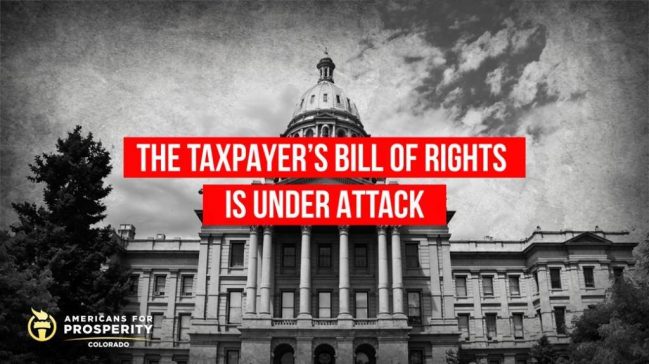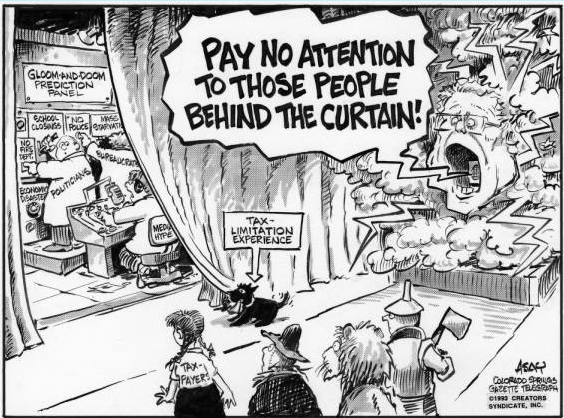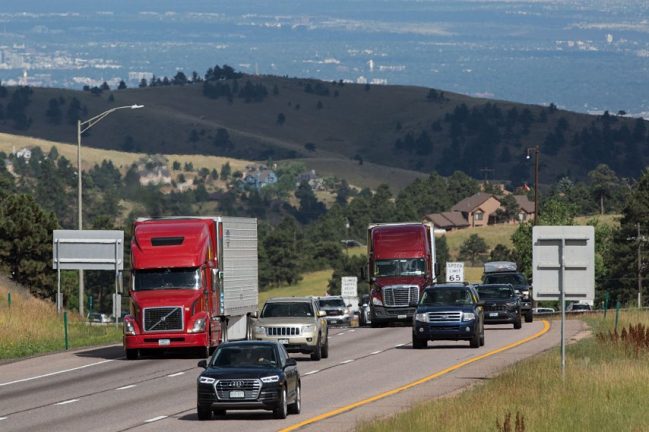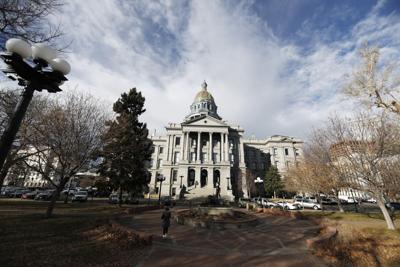DENVER–Governor Polis and the majority Democrats have an ambitious agenda this legislative session. Question is, how will they pay for it all? With the failure of Proposition CC in November, those who were hanging their hats on voters giving up future tax refunds, allowing the state to keep and spend overcollected tax revenue, will need to find new pots of money. Indeed, not only did Coloradans vote to keep the Taxpayer’s Bill of Rights (TABOR) revenue limit in place, that limit has been hit and the state income tax rate is actually ratcheting down for the year.
Republican strategist Roger Hudson and Democrat strategist Miller Hudson recently sat down with Complete Colorado editor-in-Chief Mike Krause on the public affairs TV show Devil’s Advocate (airs Friday nights at 8:30 on Colorado Public Television, channel 12) to talk about where Democrats might turn to bring in new revenues. Both agree that one option is more more fee-funded government-run enterprises, which operate outside the TABOR budget cap. Check out the video below to find out more.





 This year’s defeat of Proposition CC was a bitter experience for the state’s Democrats and liberal groups, but apparently not a didactic one, at least for the latter. Proposals are already in the works for some new iterations of the ubiquitous tax-increase ballot measures which crop up every second election or so, just to see if perseverance will ultimately win out over fiscal literacy.
This year’s defeat of Proposition CC was a bitter experience for the state’s Democrats and liberal groups, but apparently not a didactic one, at least for the latter. Proposals are already in the works for some new iterations of the ubiquitous tax-increase ballot measures which crop up every second election or so, just to see if perseverance will ultimately win out over fiscal literacy.

